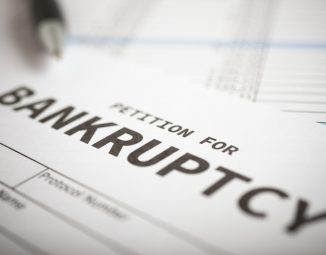The Cookie Crumbles in Baker’s Bid for a § 503(b)(9) Administrative Claim
Under section 503(b)(9) of the Bankruptcy Code, a creditor may recover as a priority administrative expense the value of goods sold to the debtor in the ordinary course of its business that are “received” by the debtor within the twenty-day period before the filing of the bankruptcy petition. The stakes of such a determination are considerable since, in most Chapter 11 business bankruptcies, priority administrative claimholders are paid in full while general unsecured claims receive only pennies on the dollar, if anything all. Several months ago in this blog, we discussed the opinion of the Third Circuit Court of Appeals in World Imports Ltd. which addressed, under section 503(b)(9), the applicable date of “receipt” by the debtor of goods that are shipped from the seller in China to the buyer in the United States under free on board shipping terms. The Third Circuit reversed the Bankruptcy and District Courts below and held that “receipt” of goods under the statute occurs when the buyer takes physical possession of the goods in the United States port as opposed to the earlier date when the goods are shipped. We observed that this statutory construction would be hailed as a victory by the trade vendor community as more shipments will be deemed to fall within the twenty-day window resulting in greater administrative claim eligibility.
The Bankruptcy Court in Delaware recently defined “receipt” as requiring physical possession in denying a Motion for Allowance and Payment of an Administrative Claim filed by a bakery distributor which had unpaid deliveries of baked goods of almost $1 million made during the twenty-day period before a bankruptcy filing. Awareness of the nature of the debtor’s business model is critical in understanding the Court’s administrative claim denial. The debtor, Associated Wholesalers, Inc. (AWI), was a cooperative food distributor that provided distribution and retail services to member retailers (AWI Members). Bimbo Bakeries USA, Inc. (BBU) is a manufacturer and distributor of baked goods. BBU and AWI participated in a business arrangement in which AWI Members would order baked goods from BBU and BBU would deliver the goods directly to the AWI Member. AWI Members paid AWI for the baked goods delivered by BBU and then AWI would remit payment to BBU on a weekly basis, less its retained administrative fee.
BBU contended that the value of baked goods delivered to the AWI Members within twenty days of AWI’s bankruptcy filing gave rise to a section 503(b)(9) administrative claim. As there was no dispute that the baked goods were not physically delivered to AWI, the issue before the Bankruptcy Court was whether they were constructively received by AWI. AWI naturally opposed the administrative claim request, arguing that AWI never received — physically or constructively — the baked goods delivered by BBU to the AWI Members. BBU countered that the integral role that AWI played in the business arrangement amounted to “constructive receipt” by AWI. AWI’s role included negotiating discounted prices with BBU, implementing a centralized billing system, establishing incentive programs, handling customer complaints, collecting payment from the AWI Members, and remitting collected payments to BBU.
The term “received” is not defined in the Bankruptcy Code. In analyzing the meaning of the term “received” for purposes of section 503(b)(9), case law and legislative history suggests that it has the same meaning as “received” in section 546(c), which governs reclamation. Courts have also looked to the Uniform Commercial Code (UCC) for guidance in defining the term “receipt.” UCC § 2-103 defines receipt as taking “physical possession” of goods. Possession may be actual or constructive, and occurs when the seller can no longer stop delivery and is left only with the remedy of reclamation. UCC § 2-705(2) sets forth four events that terminate a seller’s right to stop goods in transit. Only one of those events involves the buyer taking physical possession of the goods. The other three events involve forms of constructive possession because, under UCC § 2-702(2), the right of reclamation arises only when an insolvent buyer has “received [the] goods.” However, courts have held that constructive possession in reclamation cases occurs only when the goods are delivered to a third party who is a bailee for the debtor.
It was undisputed that the baked goods delivered to AWI Members were not in AWI’s actual physical possession nor were the AWI Members bailees for AWI. BBU sought the application of a broader definition of constructive receipt to include situations where a debtor is so integrated in the transaction that there is an indivisible relationship between the debtor and third-party recipient of goods constituting constructive possession.
The Bankruptcy Court declined to expand the definition of constructive receipt to include deliveries to non-bailee third parties where the debtor’s involvement is limited to facilitating the transactions between the third party and the vendor. The Bankruptcy Court looked to comparable cases where courts have examined and rejected the validity of an administrative priority claim under section 503(b)(9) in the context of “drop ship” transactions. In a drop ship transaction, a buyer purchases goods from a vendor which are shipped directly to a third party to fulfill a separate sale agreement between the buyer and third party. Looking to the business arrangement with AWI, the Bankruptcy Court concluded that the connection between AWI and BBU was even more remote than a drop ship transaction. Unlike a drop ship transaction, where the debtor orders the goods, the AWI Members ordered directly from the vendor BBU. The Bankruptcy Court thus concluded that because AWI did not take actual or constructive possession of the goods at issue, BBU was not entitled to an administrative priority claim under section 509(b)(9) for goods delivered to non-debtor third parties.
The lesson to be learned by trade vendors from cases such as Associated Wholesalers and World Imports is clear. It is imperative that trade vendors who sell goods to soon-to-be-bankrupt customers have a comprehensive understanding of current developments and effective strategies for obtaining administrative claim status. The failure to do so will invariably result in money being left on the table and potentially avoidable losses suffered by the trade creditor.





